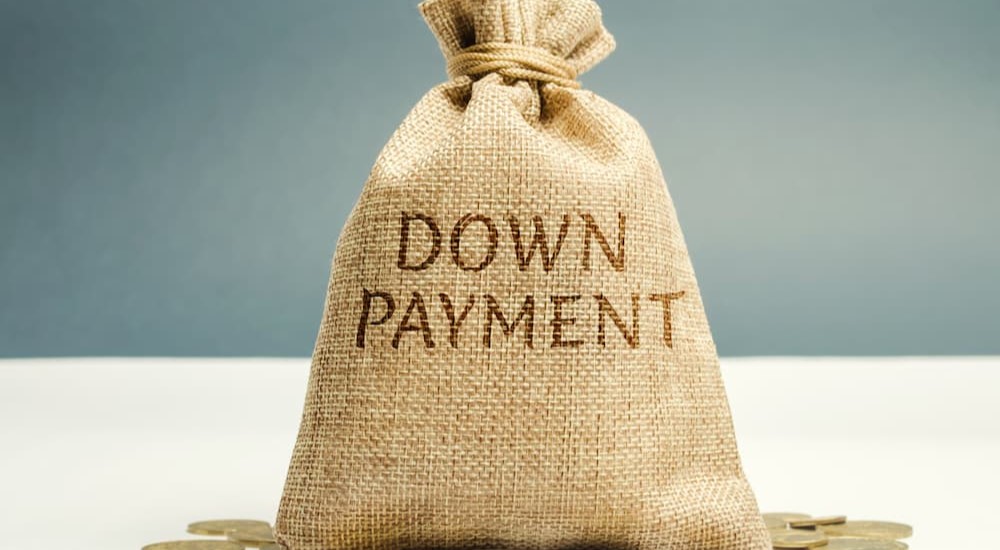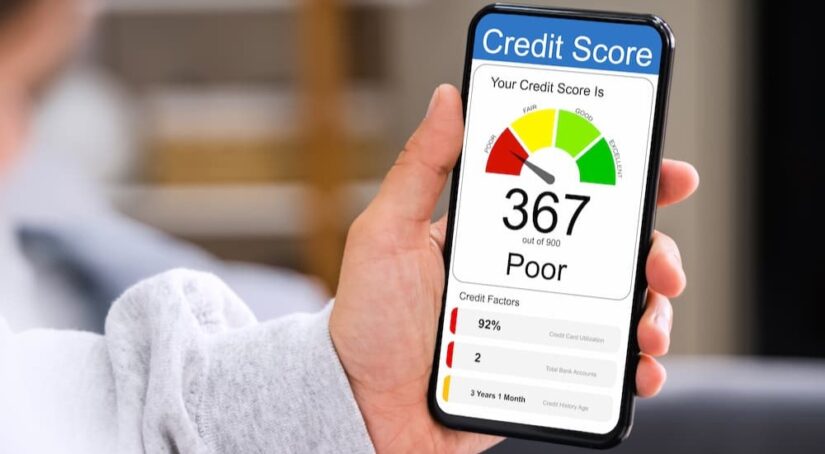Purchasing a new car can be a daunting process. Not only can it be difficult to find a vehicle that suits your exact needs, but the financial side of things can be a real slog, especially if you have less than excellent credit. In the face of difficult or constrained financial situations, figuring out how to purchase your next vehicle can be challenging when it feels like the odds are stacked against you. Luckily, there are various ways in which those who experience such constraints can still get the vehicles they need—and the best place to start is with a dealership that will work closely with you to choose a purchasing plan amenable to your situation. So no matter how constrained your situation is, know there always exists an option for bad credit car financing.
There are a few important things to keep in mind that will alleviate your stress when you begin purchasing a new vehicle while suffering from bad credit. One in particular is to make a strategic down payment, allowing you to work out your long-term financial planning more easily. Making a down payment on a car can be incredibly conducive to a tight situation, and a few things are good to remember to get the most out of this avenue.

Plan Ahead, Soften the Burden
There are various reasons why making a down payment on a vehicle can be helpful to those with bad credit, but the primary reason to consider is that it can make it much easier to get a loan to help pay off the rest of the cost. Those with bad credit may have difficulty getting approved for a loan, so making a down payment can aid in getting that loan approved. Since making a down payment reduces the overall long-term expense of the vehicle when financing, it reduces the bank’s risk in loaning you the money for the vehicle.
The larger the down payment, the less money needs to be sunk into the vehicle over time, thereby increasing the bank’s chances of approving your loan. Making a down payment can also communicate a clear intent that you shall be diligent in making payments, as you’ve already invested so much of your own money into the asset; this further increases the bank’s confidence in your ability to consistently follow up on your loan, further improving the chances of approval.
Larger down payments can also aid in getting you a better interest rate when getting a loan, which will only serve to help you in the long run, as it means paying less overall. It can also help you to avoid negative equity so that you don’t have to pay for more than the vehicle is worth.
Some dealerships that work with people with bad credit will even offer various incentives for down payments. Depending on where you go, dealerships may offer perks such as lower monthly payments in exchange for a larger down payment, giving those with bad credit the ability to take advantage of lower rates and dues.
Of course, it is essential to consider your budget when making a down payment on a vehicle, especially if you have bad credit. Only put money into the vehicle if you have the ability to consistently make payments, whether you finance through the dealership or get a loan through your bank. Talking with someone from either the dealership or the bank can help you arrange a payment plan you feel confident you can commit to for the long term. If you do not feel confident in your ability to follow up on your monthly payments, you should not go through with the payment plan, as it could serve to further worsen your credit.
If you’re looking to replace a vehicle that you already own, a good strategy to consider might be trading in the vehicle that you own already, as it can help you get the money you need either to make a sizeable down payment or to allocate more money toward monthly payments so as to relieve long term pressure. Dealerships use a myriad of methods for evaluating a trade-in vehicle’s worth, but keeping your car clean and well-maintained is a surefire way to keep that prospective value on the high end of what the model is currently worth. As long as the vehicle you currently own is in good condition, chances are you can trade it in for a good amount of money that will help your financial situation, allowing you to more effectively get behind the wheel of that newer model you’ve been looking at.
Making a down payment on a new car can also serve to put your credit score on the mend as long as you remain consistent in making all of your loan payments on time. As mentioned earlier, the larger the down payment is, the lower your monthly loan payments will be, so sinking that larger sum of money in from the get-go will make your financial situation easier as time goes on, likely motivating you to remain diligent in your payments and improving your credit and overall financial situation in the end.
Again, it is highly imperative to consider your constraints when making a down payment on a car. Just because there are benefits to making a larger down payment doesn’t necessarily mean that it’s the right course of action for everyone. You should only contribute a prudent, reasonable amount of money into a down payment—only enough that your current financial situation can account for without suffering. Do not go dipping into a large portion of your life savings. Respecting your budget is the first step in considering taking out a loan, financing a vehicle, and ultimately making that down payment.

Bad Credit, No Problem
To wrap things up, even though the process of buying a new car can be difficult to wrap one’s head around—especially for those with subpar credit—there is always a way to make the situation work in the end. For those with budgetary and credit constraints, purchasing a new vehicle simply requires a particular level of strategy that, when employed properly, can get you behind the wheel of a vehicle that works best for you.
It also stands to reason that those with bad credit should consider purchasing a vehicle that was previously owned, as pre-owned vehicles tend to have significantly lower starting prices than new vehicles. This will only serve to make the payment process more smooth, as it can make committing to a down payment less daunting when the initial asking price of the vehicle is already reasonable.
It is important to remember when taking out a loan for a new car that consistency is key. You’re more likely to get approved for a loan for your new vehicle—and subsequent loans from then on—by showing your commitment to your financial agreement and being diligent about your monthly payments.
In this day and age, financial situations are tough for people across the board, and the subject of bad credit should always be dealt with on the basis of empathy and understanding. When employing a cautious strategy in your next vehicle purchase, your diligence and care will likely improve your credit to a large degree, opening up many doors for future financial transactions.



